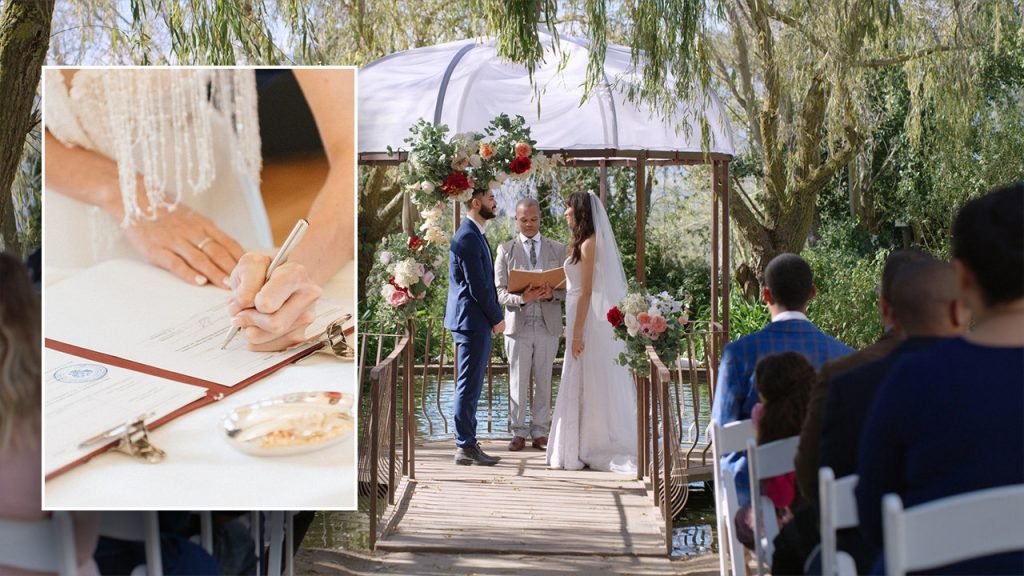Wedding planning is a significant part of getting married, and one major decision that couples need to make is who will officiate their wedding ceremony. Couples have the option of choosing a civil wedding officiant, a religious officiant, a professional officiant, or even a close friend or family member to lead their ceremony. A trend in the wedding industry is for couples to choose a loved one to officiate their wedding, which involves the friend or family member taking certain steps in order to be able to officiate. It is important to check state requirements, get ordained, plan for the ceremony, brush up on public speaking skills, and not forget about filing the marriage license.
To officiate a wedding, it is essential to first check state requirements for registration. These requirements vary from state to state, so conducting thorough research and reaching out to the city clerk’s or county clerk’s office is important. To become ordained, individuals can typically go through an online process, such as through Universal Life Church or American Marriage Ministries. Some states also offer one-day certification programs for family members or friends who wish to officiate a wedding for a loved one.
Planning accordingly is crucial when asked to officiate a wedding. Meeting with the couple several times before the big day is important in order to understand how they want the ceremony to go. Additionally, it is necessary to brush up on public speaking skills to ensure that the ceremony runs smoothly. Practicing the ceremony multiple times and in front of others can help alleviate any nerves or uncertainties that may arise during the actual event.
One important responsibility of the officiant is ensuring that the marriage license is properly filed. The timeline for when a marriage license is valid varies by state, so it is crucial for the officiant to know the specific rules and regulations in the state where the wedding will take place. A marriage license is a legal document signed by the spouses, officiant, and witnesses, allowing the couple to be legally married. After the ceremony, it is the officiant’s responsibility to make sure that this document is filed correctly.
Choosing an officiant for a wedding is a significant decision that couples have to make. Whether they choose a civil, religious, professional, or personal officiant, there are various steps that need to be taken in order to ensure that the ceremony runs smoothly. From checking state requirements to getting ordained, planning for the ceremony, practicing public speaking, and handling the marriage license, the officiant plays a crucial role in making the wedding day a special and memorable event for the couple and their loved ones.













